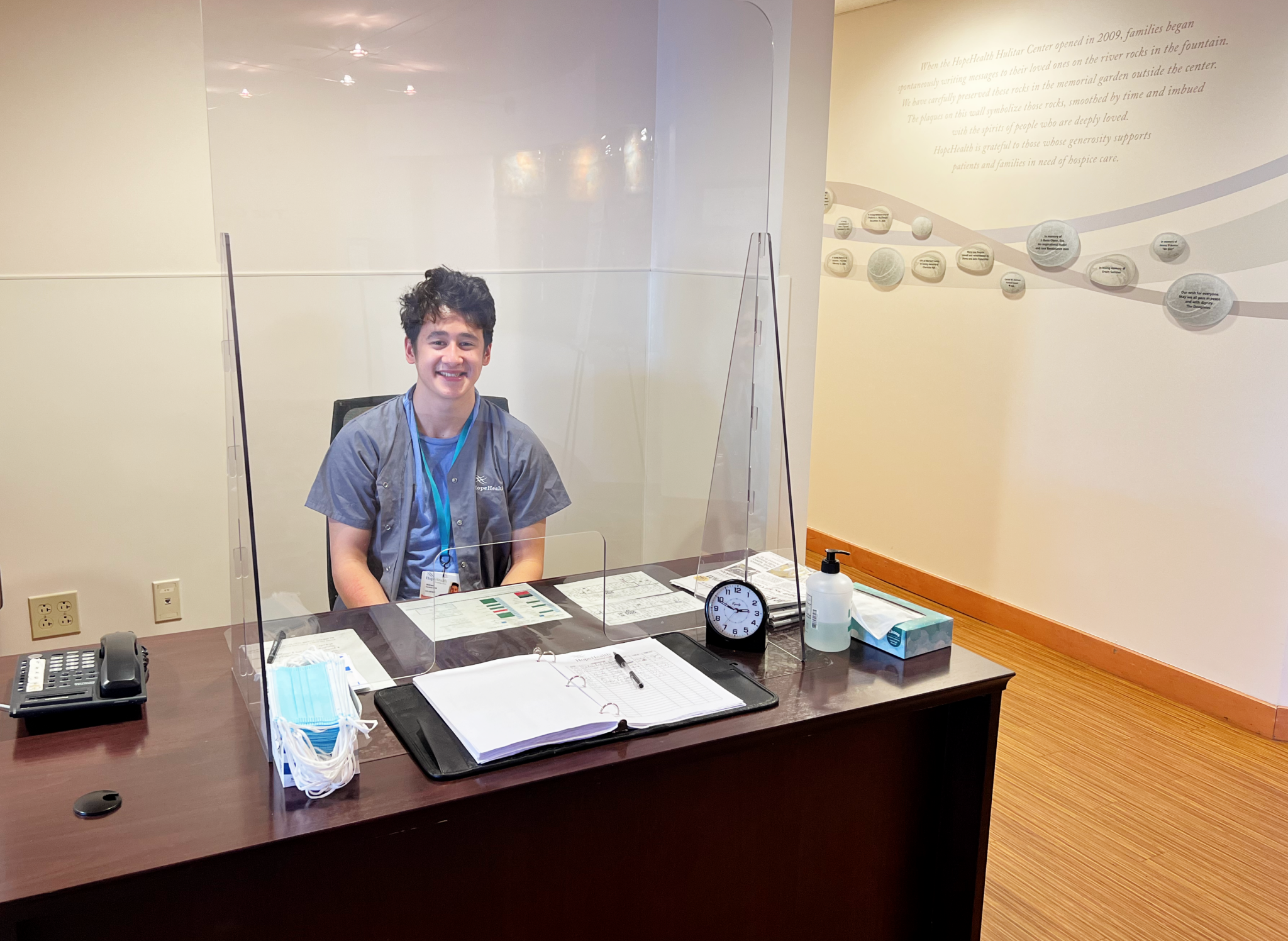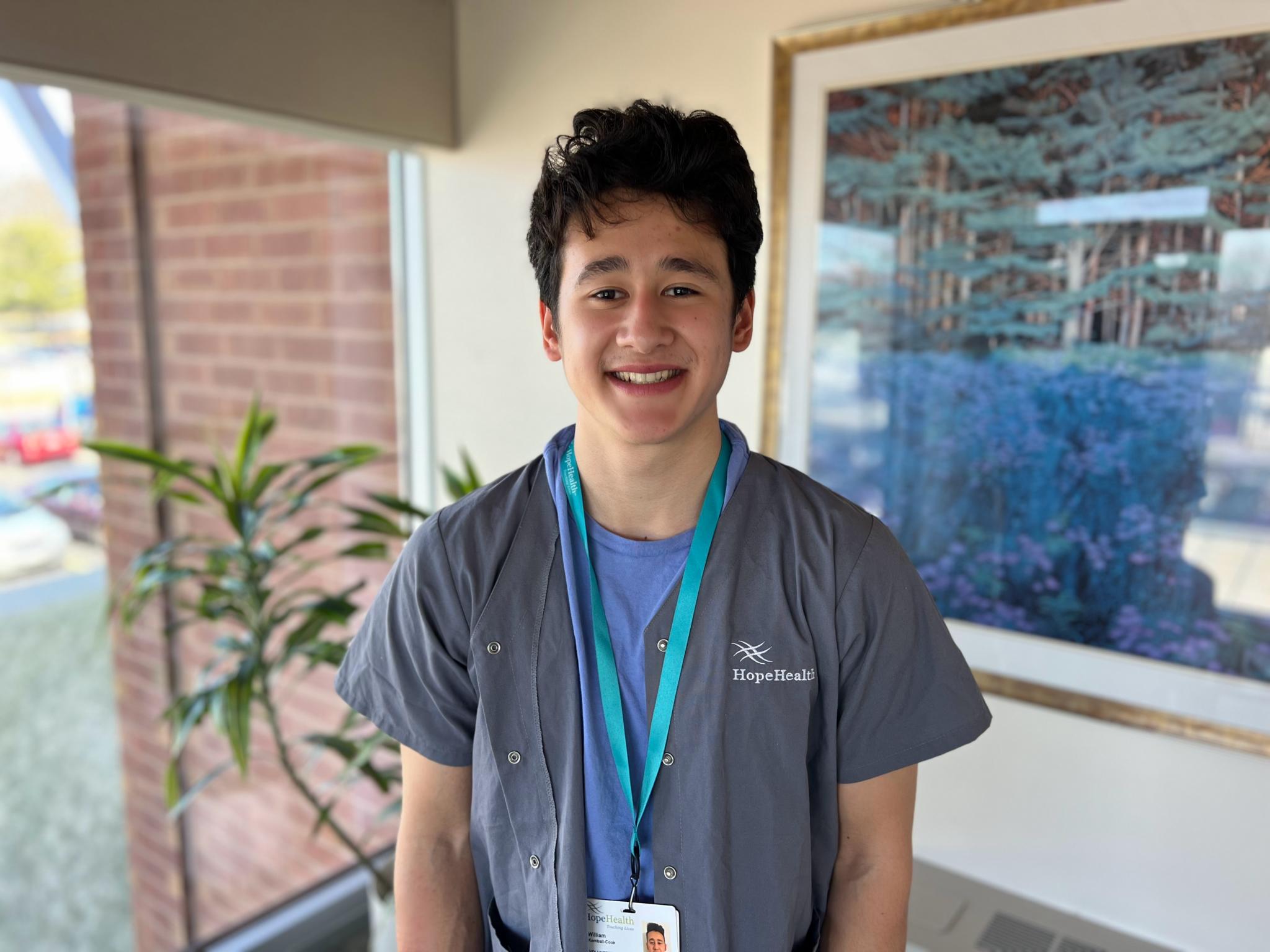Three years ago, when William Kemball-Cook stood before his high school graduating class in New Hampshire, he urged his fellow graduates to “keep your smile.” They had come through the heart-wrenching first year of the pandemic. As they went out into the world, he encouraged them to share that hard-won optimism with others.
Today, as a junior and pre-med student at Brown University, that’s exactly what he’s doing.
Will is co-president of Brown Undergrad Students for Hospice Volunteering (BUSH), a college group that supports HopeHealth’s hospice care and PediPal program. In his time as a volunteer, he’s given comfort to patients and families — and received life lessons in return.
> Become a HopeHealth volunteer
How did you get involved with volunteering at HopeHealth?
Will: I joined in my freshman year, when the pandemic made in-person volunteering impossible. I started off by writing cards to veterans. I was still able to make a small difference in someone’s life, even from a distance.
At BUSH, we volunteer in lots of ways with HopeHealth, from in-person visits to tutoring kids to making gift baskets. When pandemic restrictions eased up, I began visiting patients and families or at the greeter’s desk of the Hulitar Hospice Center.

Can you share an experience that’s close to your heart?
The first patient I visited at home was a 9-year-old boy in the PediPal program.
He was bedridden and not very verbal. He liked coloring, so we spent an hour coloring in his coloring book. We didn’t say much, but we both had a good time. At the end, he called me “Stupid Head,” which his nurse said was a good thing — he only calls people he likes that.
It made me realize there’s more to hospice volunteering than talking. It’s a way to make a patient feel comforted and appreciated, whether that’s through listening or just being in their presence.
> Related: What to expect from hospice care? A volunteer tells her story
When a patient or family does want to talk, what do you talk about?
It’s important to remember that these patients are all amazing people with fantastic stories. I’ll ask families where they’re from, and what they did for work or hobbies.
Reflecting on their life, with the patient or with their loved ones, can help ease some of the pain in the present. You can uplift their spirits in this potentially dark time.
You’ve also spent time shadowing HopeHealth’s doctors. What’s that like?
BUSH pre-med students can sign up to shadow a doctor at the HopeHealth Hulitar Hospice Center. The doctors talk to us about hospice and palliative care, and what a day in their life typically looks like. We get to observe their interactions with patients and families.
What really stands out to me is the way these doctors communicate with patients: the things they say, and how they talk to them during what can be a tough time. That communication can be healing.
It’s something I hope to be able to do one day: heal someone through words.

> Related: “This work has changed me”: Q&A with HopeHealth’s chief medical officer
How else do you think these experiences will shape you?
This question brings me back to what I observed in HopeHealth’s doctors. I hope that one day I can be looked at in that same way: someone who’s compassionate, caring and able to provide support to families and patients in a time of need.
I don’t know yet what specialty I’ll pursue in medicine; I’ll get a better idea when I’m in med school. But I know that I want to be the kind of doctor that people can look to not only for cures, but also emotional support and someone they can trust.
What’s the biggest lesson you’ve learned from hospice volunteering?
No matter how dire things seem, you can always make a difference in someone’s life.

